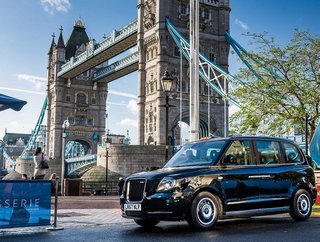First electric black cab used in London

The iconic black taxi of London has been resigned into an electric vehicle, with the first one used on 5 December.
The new model of electric cars conform to the new emission regulations that have been set for new taxis entering London in 2018.
It is expected that more than 9,000 electric taxis, which is almost half of the current fleet size, will be ready for trade by 2021 – replacing old diesel vehicles in the industry.
“The vehicle is totally new from the ground up and it’s a much better experience both for the cabbie and the passengers,” Chris Gubbey, London Electric Vehicle Company’s Chief Executive, reported to AFP.
SEE ALSO:
-
UK autonomous network project to increase company interest in electric vehicles
-
10 top car manufacturers launch raw materials sustainability assessment
-
The UK’s first electric vehicle battery research centre will be located in Coventry
“The ride and handling is much better and it’s very quiet. It’s marrying all of the cutting edge technology with vast experience of what it takes to make a good taxi.”
The vehicles cost £55,599 (US$74,420) which is a significant increase from the £45,000 ($60,233) that the equivalent petrol taxi costs.
The taxi can travel 80 miles on a single battery charge, and are slightly larger than the traditional black cab, holding six passengers.
All of the models have modern features, such as Wi-Fi, USB chargers, plug sockets, and contactless payment card readers.
“The ride quality is unbelievable. Customers are going to love it. It’s so smooth and quiet,” commented Peter Powell, who has been driving London taxis for 22 years.






